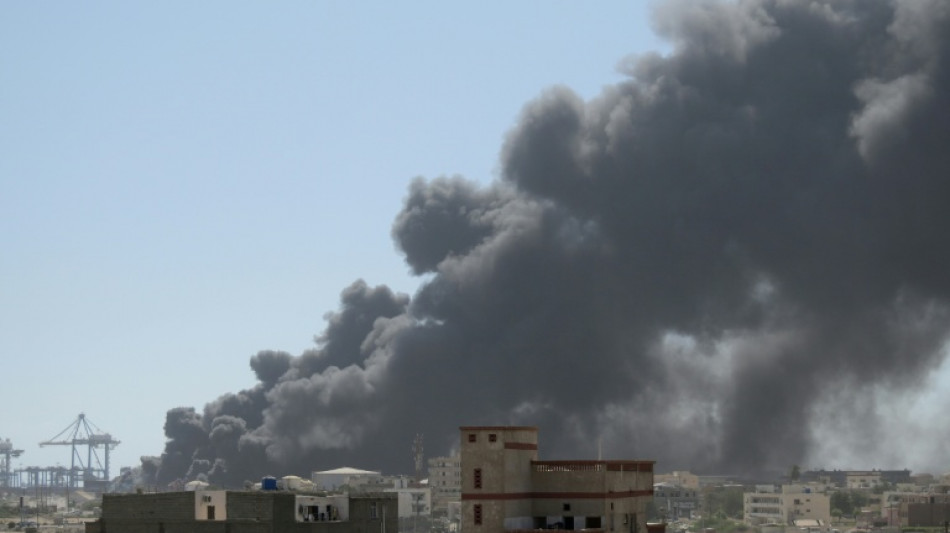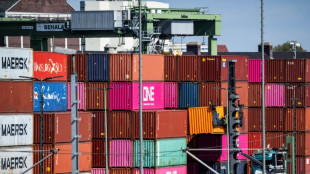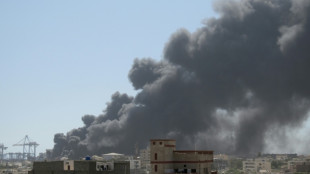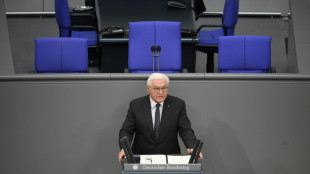

Drone strikes spark civilian exodus from army-controlled Sudan aid hub
Paramilitary drones struck army-held areas of eastern and southern Sudan for a fifth straight day Thursday, army sources said, prompting an exodus of civilians from Port Sudan, seat of the army-backed government.
Attacks targeted the country's main naval base outside Port Sudan, as well as fuel depots in the southern city of Kosti, two sources said, speaking on condition of anonymity.
"The militia launched another drone attack on the Flamingo Naval Base north of Port Sudan," one source told AFP on condition of anonymity, referring to the paramilitary Rapid Support Forces (RSF), at war with the regular army since April 2023.
Explosions were heard across the city, an AFP correspondent reported.
Port Sudan on the Red Sea coast had been regarded as a safe haven, hosting United Nations offices and hundreds of thousands of displaced people, until drone strikes blamed on the RSF began on Sunday.
The port city is the main entry point for humanitarian aid into Sudan, and UN chief Antonio Guterres warned the attacks "threaten to increase humanitarian needs and further complicate aid operations in the country", his spokesman Stephane Dujarric said.
Nearly 1,100 kilometres (some 680 miles) to the southwest, in the army-controlled city of Kosti in White Nile state, RSF drones struck fuel depots, setting off massive fires, a military source said.
"The militia targeted the fuel depots that supply the state with three drones, causing fires to break out," the source told AFP on condition of anonymity.
There were no immediate reports of any casualties.
More than two years of war have killed tens of thousands of people and uprooted 13 million, according to UN figures.
- 'No choice but to leave' -
RSF drone strikes on Port Sudan this week hit key facilities including the country's last functioning international airport, its largest working fuel depot and the city's main power station.
An army source said air defences had shot down 15 drones over the city overnight.
At Port Sudan's bustling main bus station, civilians were scrambling to leave.
"You can't get a ticket without booking over a day in advance now, all the buses are booked," said bus company employee Mahmoud Hussein.
Among those fleeing was Haidar Ibrahim, preparing to travel south with his family.
"The smoke is everywhere and my wife suffers from asthma," he told AFP. "We have no choice but to leave."
Many of those who had sought refuge in Port Sudan have been displaced multiple times before, fleeing each time the front line closed in.
Transport costs have nearly doubled as a result of fuel shortages triggered by the attacks.
"Now, we have to buy fuel on the black market," said tuk-tuk driver Abdel-Meguid Babiker.
On Wednesday evening, drones were also seen over the army-held eastern city of Kassala and northern city of Merowe, prompting anti-aircraft fire.
Eight-country east African bloc, the Intergovernmental Authority on Development (IGAD), called the attacks on civilian infrastructure in Port Sudan "unacceptable" and demanded an "immediate end".
"Any assault on this critical hub further compounds human suffering and impedes the delivery of urgently needed assistance," IGAD executive secretary Workneh Gebeyehu said in a statement.
The RSF has not commented on the drone strikes, which have hit targets hundreds of kilometres away from their closest known positions on the outskirts of greater Khartoum.
The paramilitaries have ramped up their drone campaign since losing control of nearly all of greater Khartoum to the army in March.
On Tuesday, the army-backed government severed ties with the United Arab Emirates, accusing it of supplying the RSF with advanced weapons systems.
The UAE denied the allegation, adding that the internationally recognised administration "does not represent the legitimate government of Sudan".
The paramilitaries and their allies have moved to establish a rival administration in areas under their control.
Abu Dhabi has repeatedly denied arming the RSF, despite reports from UN experts, US politicians and international organisations.
The war has effectively split the country in two, with the army holding the north, east and centre, and the RSF in control of most of Darfur and parts of the south.
U.Hernandez--VC






